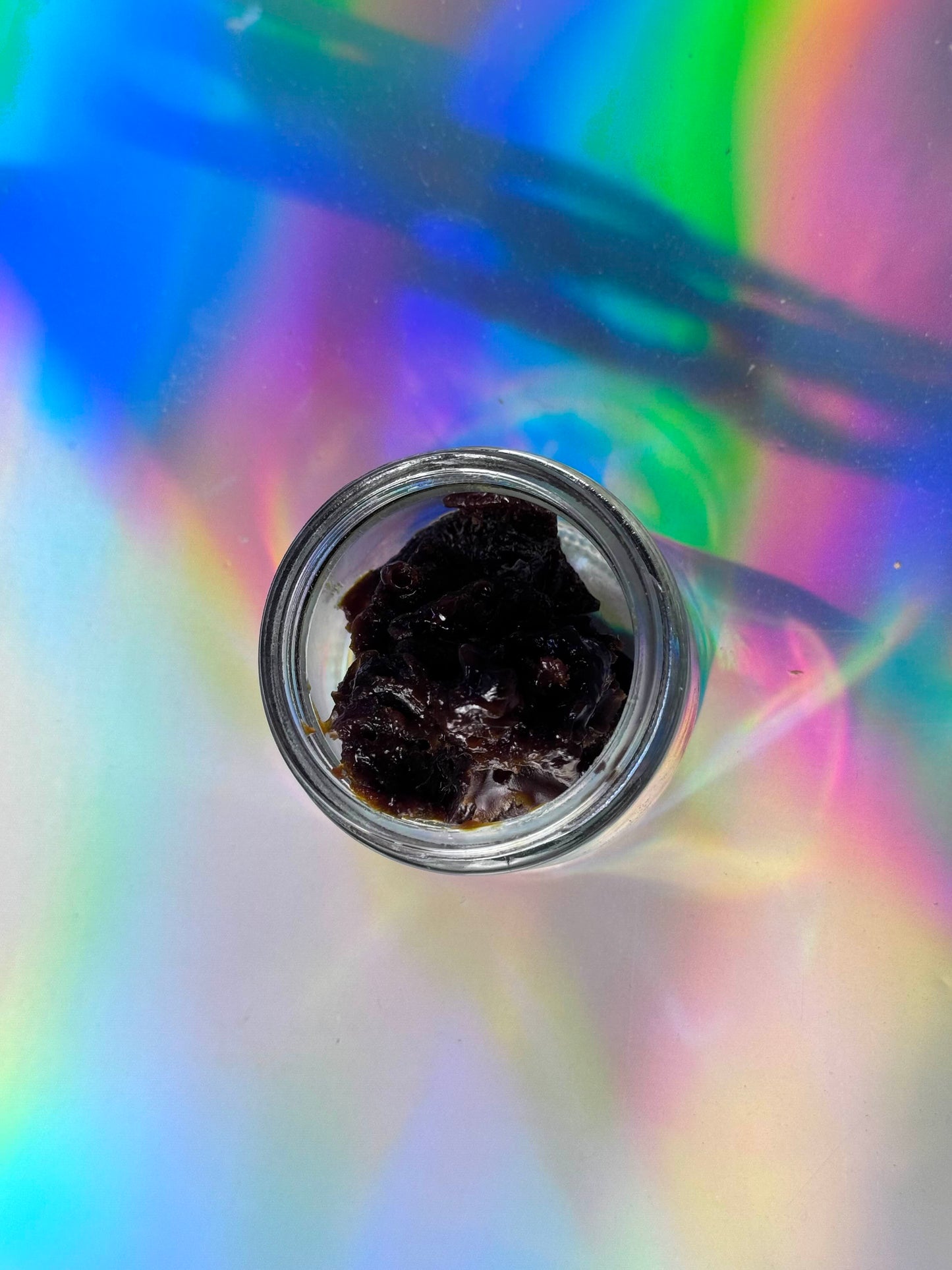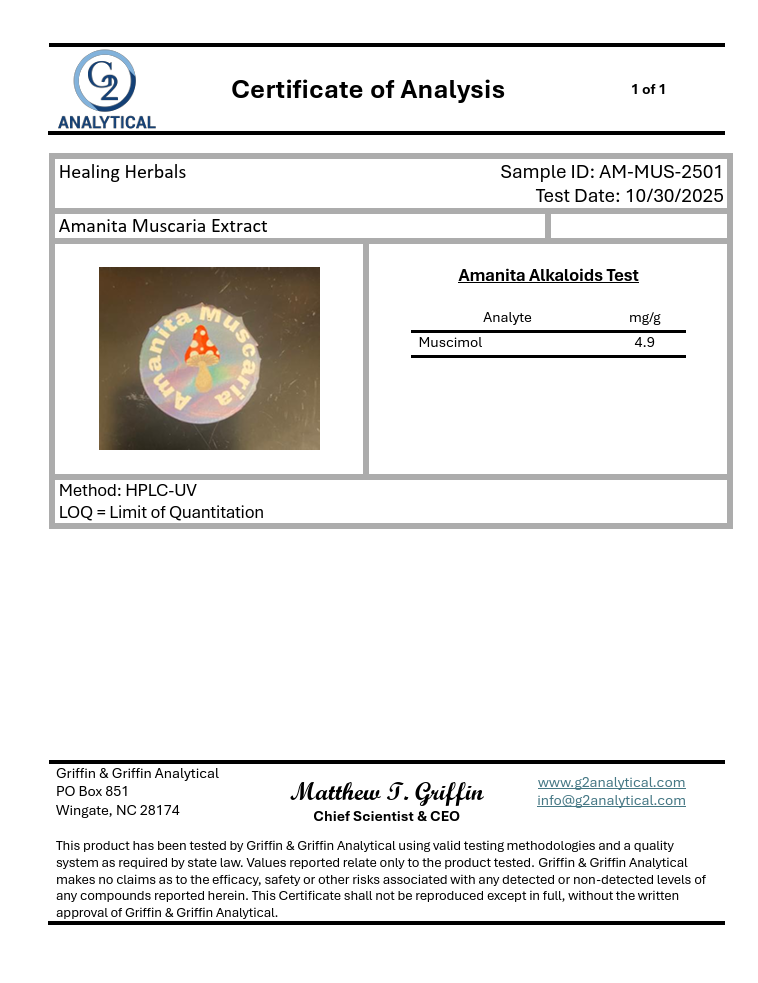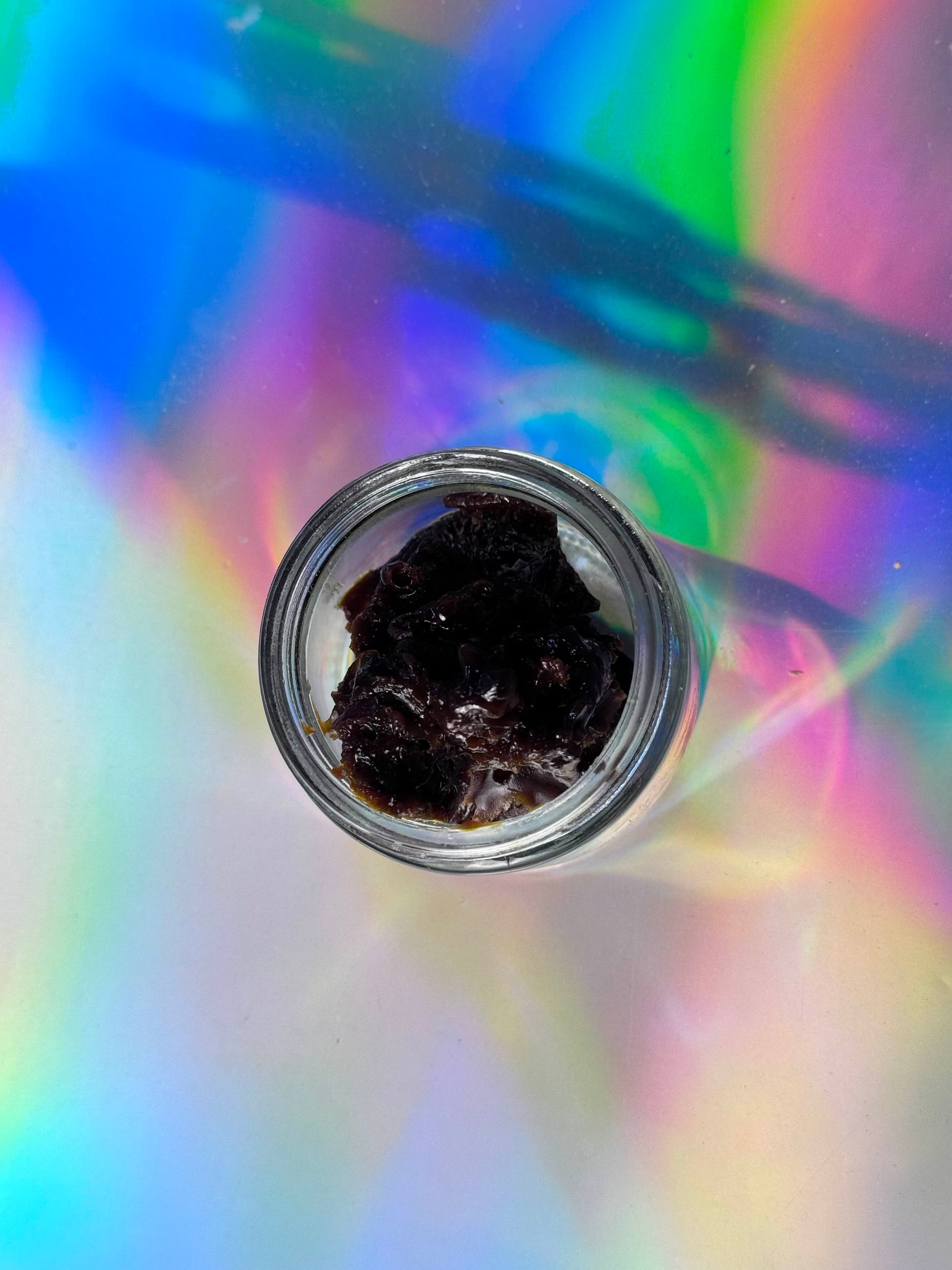
Healing Herbals
Amanita Extract 15:1 High Muscimol
Amanita Extract 15:1 High Muscimol
Couldn't load pickup availability
Amanita Extract 15:1
Product Description: This Amanita Muscaria 15:1 High Muscimol is a concentrated botanical extract derived from Amanita Muscaria Via an alcohol extract. Designed for research, academic study, and decorative applications and aromatherapy use, it retains the natural profile of the mushroom.
Historically, Amanita muscaria has been noted for its role in shamanic rituals among Siberian indigenous cultures and is referenced in ethnomycology as a traditional entheogen. This historical significance, combined with modern scientific methods, supports its status as a quality research-grade extract.
The extract may be powder or resin depending on shipping conditions
Historical Snippet: Ancient Siberian shamans utilized Amanita muscaria for its ritualistic properties, often invoking its symbolic power during spiritual ceremonies and traditional healing practices.
Key Features
-
15:1 extract ratio
-
Optimized for botanical research and academic study
-
Incorporates historical and ethnomycological significance
- Suitable for non-consumable decorative and analytical research applications
This product is not for human consumption.
Note: This product is NOT available in Louisiana
FDA Disclaimer: The statements herein have not been evaluated by the Food and Drug Administration (FDA). This product is not intended for human consumption and is provided solely for research, educational, or decorative purposes.
Share


I have been taking a small drop, the smallest amount I could pick up on a toothpick and can feel an effect with 30 minutes. It’s helping me fall sleep and stay asleep longer
Was a good time and mixed well with other herbs
Pack came quickly. Extract is high quality and easy to consume. Pretty relaxing feeling off a small portion. Could be useful for sleep or dreaming. Can help calm mental noise distractions in my experience. I combine it with 0.2g of their Pantherina or Amanita caps. Good experience overall.
I love this stuff. It tasted so good, and I ate about 1g of the extract, feeling like I was levitating. And it helped me forgive/further accept myself; thank you, healing herbals
I eat the caps at around 100mg up to 250mg once in the morning. Bonus info, if you scrape out the gills and eat just the red layer of flesh, then it is significant less weight, with same amount of goods, thus amplifying effect, through quicker absorbsion. It also reduces nausea. This extract I would estimate 60% to 65% actives in the resin. I would agree with 15:1, this one is the one to go to if you want to fell muscimol and not the ibotenic. What's weird is, I've had muscimol isolate that was synthetic and it was really strong and for some reason was not what I was used to for muscimol. So it seems even half a mg of ibotenic, way below active dose still colors the muscimol experience. This product is like a good full decarbed tea. It's ultra relaxing. It aid sleep, pain, and it also can make boring TV shows decent. For me it helps me significantly reduce my benzodiazepine intake. It's great for anxiety and just anadoctal experience has been muscimol reduces tolerance to benzos, stopping the need for escalated doses. It's been a life saver, and a gram has lasted me about a month, I'm down to 250mg now, which fortunately is still about 12 to 20 doses for me. Will be buying again!

About Amanita Muscaria
Amanita muscaria is a striking red-and-white mushroom with a long history in folklore and traditional use, known for its unique compounds muscimol and ibotenic acid that historically have been assocaited with stories opsychedelia, reindeers, and deep folklore with careful preparation, respect, and understanding due to its potent and potentially toxic nature.


